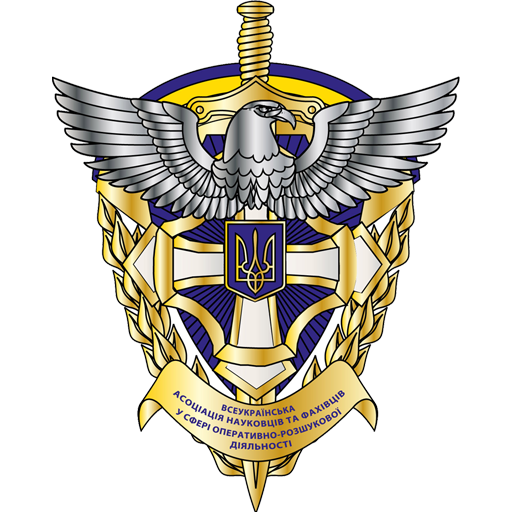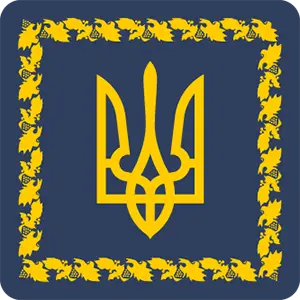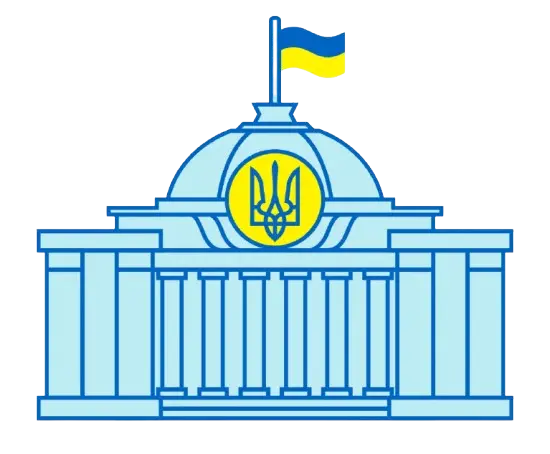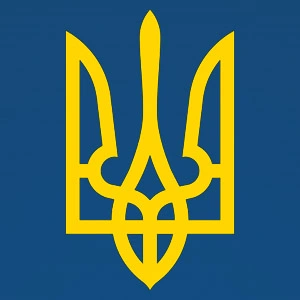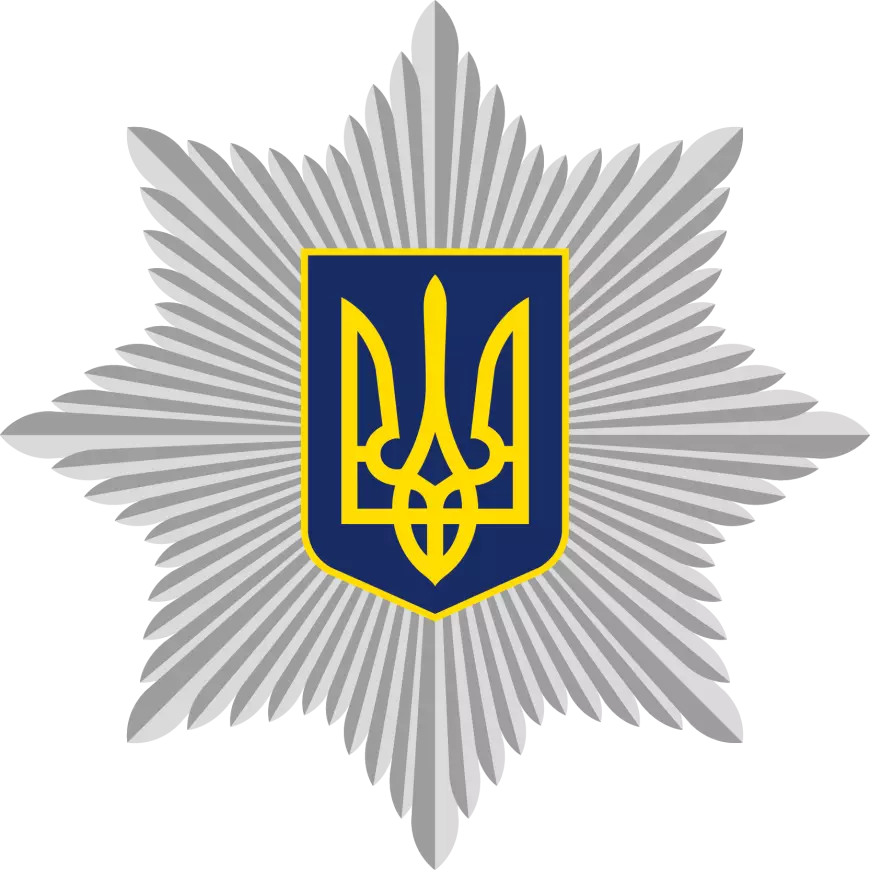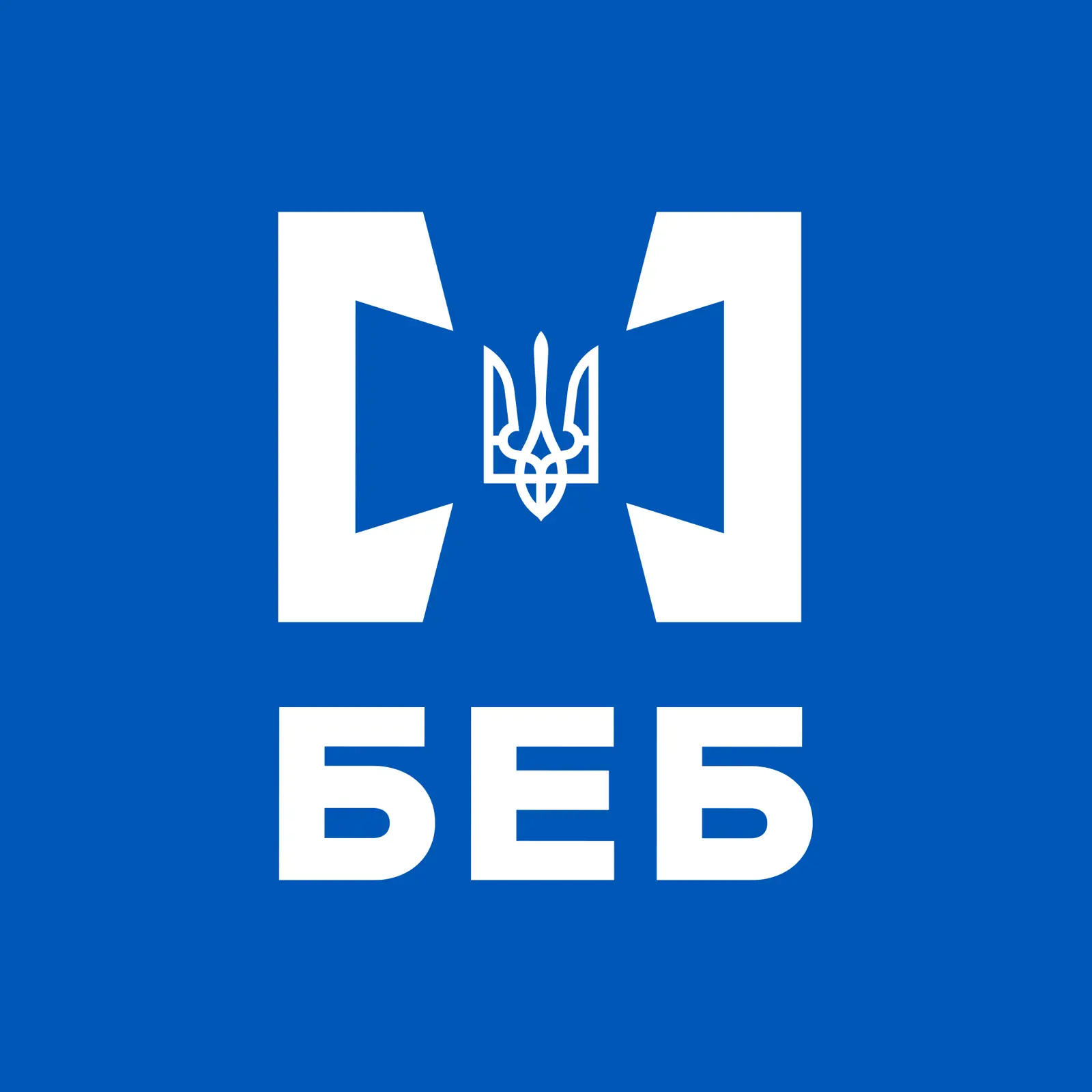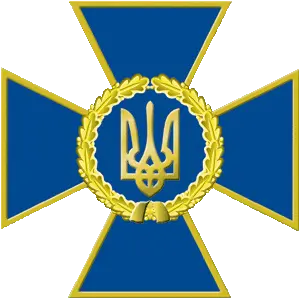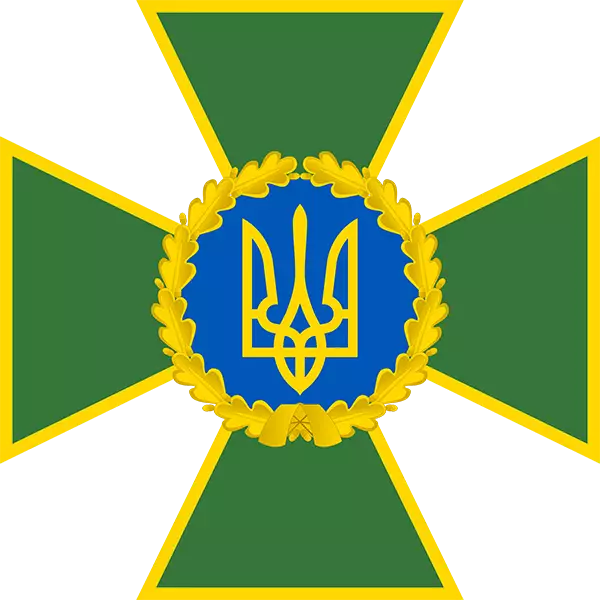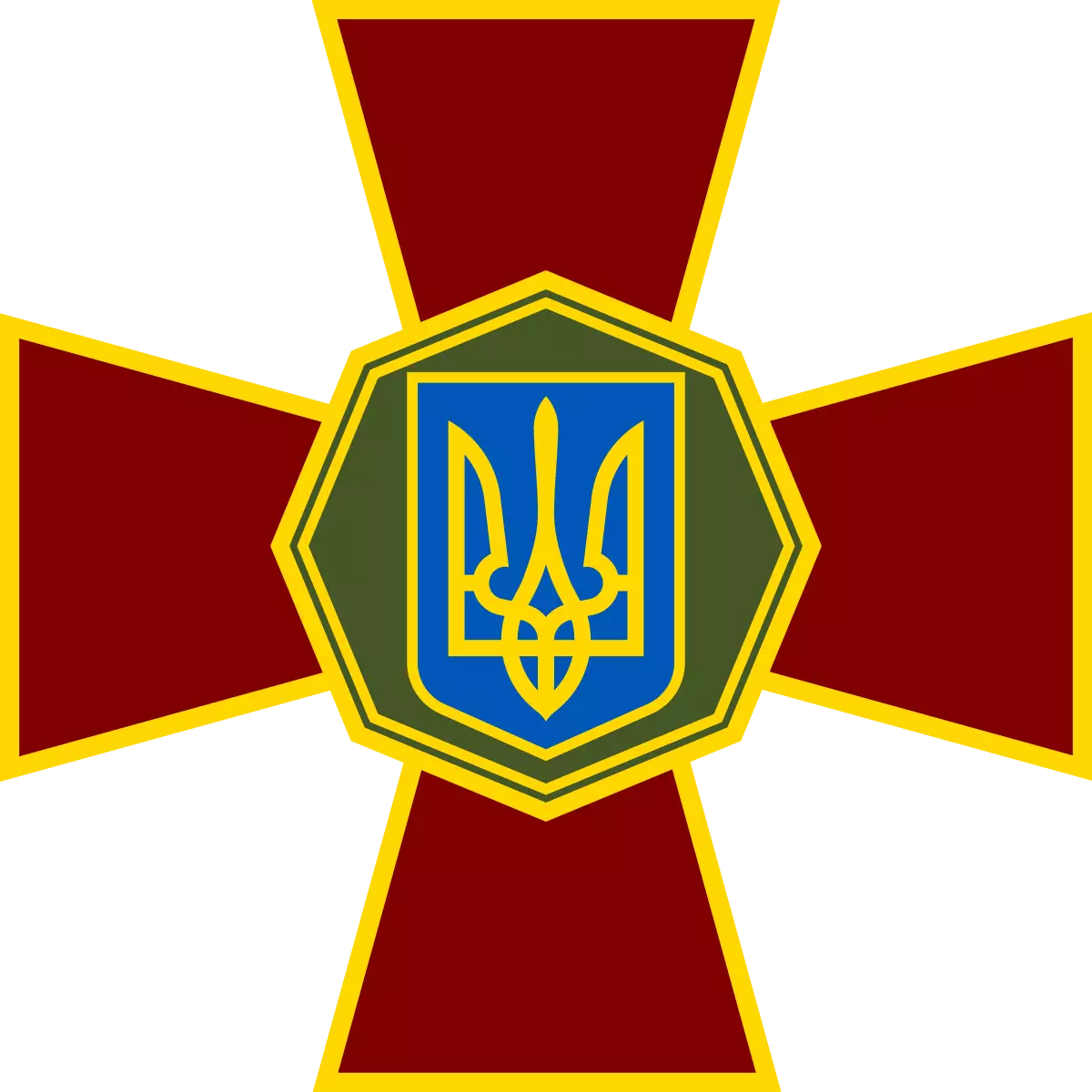All news
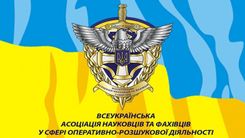
Representatives of the Association joined the editorial board of the South Ukrainian Law Journal
The South Ukrainian Law Journal is included in the list of scientific professional publications in which the results of dissertations for the degrees of Doctor and Candidate of Legal Sciences may be published (Decision of the Certification Board of the Ministry of Education and Science of Ukraine dated June 26, 2014). The specified publication is registered in such scientometric databases as “Google Scholar”, “Research Bible (ResearchBib)”, etc.
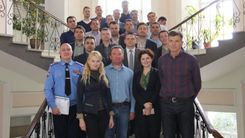
A two-day training course on criminal analysis has started at the Odessa State University of Internal Affairs
A two-day training initiated by the United Nations Office on Drugs and Crime (UNODS) was held at the Odessa State University of Internal Affairs with the assistance of the Association.
This training is based on the ANACAPA Criminal Analysis course to provide analysts and operational staff with the skills necessary to analyze large amounts of information from various sources and form sound analytical conclusions from the information received.
The training was conducted by leading university specialists – representatives of the scientific and pedagogical staff of our university, who completed the training in December 2015 and were selected from among other program participants as certified trainers using the ANACAPA methodology. Among them: members of the Association: Director of the Educational and Scientific Institute of Correspondence and Distance Learning, Candidate of Law, Associate Professor, Police Lieutenant Colonel Andriy Kholostenko, and Head of the Department of Criminology, Forensic Medicine and Psychiatry, Candidate of Law, Associate Professor, Police Major Oleksandr Zayets.
This time, law enforcement officers from all over the country who are involved in financial investigations and money laundering investigations, as well as employees of other operational units, took part in the training as listeners. Thus, representatives from the Main Directorate of the National Police in the Odessa region, the Cyber Police Department of the National Police of Ukraine, the Department of Economic Protection of the National Police of Ukraine, the 8th Territorial Department of the Drug Crime Countermeasures Department of the National Police of Ukraine, the National Anti-Corruption Bureau of Ukraine, the Southern Regional Department of the State Border Guard Service of Ukraine, etc. also participated in the training.
At the beginning of the event, the Chairman of the Association, Doctor of Law, Professor O.E. Korystin, welcomed all those present and introduced the distinguished guests - Kateryna Bugayets, an expert of the UNODC Global Anti-Money Laundering Program, and Myroslav Prlevych, an expert in criminal intelligence using the ANACAPA (UNODC) methodology.
Зауважимо, що даний тренінг є важливою передумовою проведення практичного тренінгу, що проходитиме в ОДУВС протягом наступних двох тижнів, адже всі ті, хто успішно пройде навчання – отримають змогу опанувати, під пильним наглядом експерту з кримінальних розслідувань з використання методики ANACAPA Мирослава Прлевича, комп’ютерну програму «І2», що використовуватиметься на практиці для більш ефективного розкриття фінансових злочинів.
Нагадаємо, що в ході занять також розглядатимуться питання складових аналітичного процесу; аналізу зв’язків; формування і оцінки умовиводів; аналізу телефонних перегоIt should be noted that this training is an important prerequisite for the practical training that will be held at the ODUVD within the next two weeks, because all those who successfully complete the training will have the opportunity to master, under the close supervision of an expert in criminal investigations using the ANACAPA methodology Myroslav Prlevych, the computer program "I2", which will be used in practice for more effective disclosure of financial crimes.
We remind you that during the classes, the issues of the components of the analytical process; analysis of connections; formation and evaluation of conclusions; analysis of telephone conversations; drawing up diagrams of flows, events and actions; concepts and strategies of analysis using computer technologies, etc.
In turn, after completing the two-week course, all participants of both the theoretical and educational training received an international certificate.ворів; складання схем потоків, подій і дій; понять і стратегії аналізу зі застосуванням комп’ютерних технологій тощо.
В свою чергу, після завершення двохтижневого курсу всі учасники й теоретичного й навчального тренінгу отримали міжнародний сертифікат.
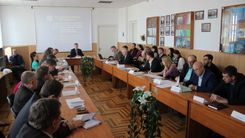
A round table on the problems of modern criminal and legal policy of Ukraine was held
At the Dnipropetrovsk State University of Internal Affairs, under the leadership of a member of the Association - Head of the Department of Criminal Law Disciplines of Faculty No. 4, Candidate of Law, Associate Professor E.V. Ryzhkov, an interregional round table was held on the topic: “Modern Criminal Law Policy of Ukraine: Legislation and Judicial Practice (Trends, Problems and Ways to Overcome Them)”. Technical support for the round table was provided by the Department of Criminal Procedure, headed by Candidate of Law, Associate Professor V.I. Slipchenko.
The geography of the participants of the scientific event covered a large number of cities in Ukraine, namely, Odessa, Kyiv, Dnipropetrovsk, Chernihiv, Kharkiv, Zaporizhzhia, Dniprodzerzhynsk, Lviv, Cherkasy, Kryvyi Rih, Kherson and Poltava. Each city was represented by well-known scientists, practicing lawyers, postgraduate students, students and cadets. A total of 166 materials were received.
All reports and messages of the round table participants, who arrived from different regions of Ukraine, were very interesting, scientifically new, modern and, most importantly, significant for the development of the criminal law policy of the state. The most lively discussion during the discussion was caused by the reports of Vedmidsky O.V. “On the qualitative characteristic of changes in criminal law”, Guz I.V. “Socio-legal aspects of volunteer battalions as a component of the criminal law policy of Ukraine” and Katkova A.G. “Procedural features of the completion of pre-trial investigation under conditions of a state of emergency”.
At the end of the round table, summing up, the participants identified the most important steps in reforming the criminal law policy of Ukraine.After the round table, all guests, with the direct assistance of the temporarily acting head of the professional training sector of the Patrol Police Department, Guz I.V. and the head of the development department of the Dnipro-1 Special Purpose Police Patrol Service Regiment, Lukinykh O.V., were invited to a tour of the Dnipro-1 Special Purpose Police Patrol Service Regiment.
During the tour, all those present were introduced to the life of the battalion personnel and the features of their daily lives. The guests visited the temple, which was built to honor the memory of the dead and missing participants in the fighting in the Donetsk region during the ATO. Also, on the territory of the battalion, near the temple, there is a memorial dedicated to the fallen soldiers. We honor, eternal, bright memory. The subsequent tour gave everyone present an opportunity to get acquainted with the improved and repaired, by our own efforts and thanks to the support of the volunteer movement, combat equipment.
At the end of the excursion, everyone present was presented with commemorative flags with the emblem of the Dnipro-1 Special Purpose Police Patrol Service Regiment, and on behalf of the regiment's leadership, a member of our Association, the head of the Department of Criminal and Legal Disciplines of the DSUVS, E.V. Ryzhkov, was awarded a certificate for patriotism and courageous support of volunteers during the performance of combat missions.

COMBATING CRIMES AGAINST PROPERTY IN THE ZONE OF ANTI-TERRORIST OPERATION
The printed series “Theory and Practice of ORD” has been supplemented with a new monograph:
Theoretical and Applied Principles of Counteracting Crimes Against Property by Criminal Investigation Units in the Area of Conducting an Anti-Terrorist Operation: Monograph / S.V. Albul, O.Yu. Antsiferov, M.V. Stashchak, A.O. Shelekhov, V.V. Shendryk; General Scientific Editor S.M. Gusarova. – Kharkiv: Publishing House of the KhNUVS, 2015. – 232 p.
This monograph is one of the first works in domestic operational-search science, which developed modern theoretical, legal and organizational principles of counteracting crimes against property by criminal investigation units in the area of conducting an anti-terrorist operation in our time. The theoretical conclusions, practical recommendations and other research results set out in it are based on the achievements of scientists in the fields of philosophy, general theory of law, operational and investigative activities, legal psychology, forensics, criminology, criminal procedure and criminal law of Ukraine and foreign countries, as well as legislative and departmental regulatory legal acts and materials of domestic and foreign practice.
The monograph is intended for employees of operational units of the internal affairs bodies of Ukraine, scientific and pedagogical personnel, cadets and students of higher educational institutions of the Ministry of Internal Affairs of Ukraine and other law enforcement agencies.
In 2015, the indicated monograph took 1st place in the All-Ukrainian competition for the best scientific, reference and scientific periodical in the system of the Ministry of Internal Affairs of Ukraine.

BIOMETRIC TECHNOLOGIES IN THE ACTIVITIES OF LAW ENFORCEMENT BODIES
The Lviv State University of Internal Affairs published a manual, one of the authors of which was a member of the Board of the Association - Doctor of Law, Professor Vasyl Pavlovych Zakharov.
“Biometric technologies in the 21st century and their use by law enforcement agencies”: manual. – 2nd ed., add. / V. P. Zakharov, V. I. Rudeshko. – Lviv: Lviv State University of Internal Affairs, 2015. – 492 p.
The reviewers of the work were:
V. L. Ortynskyi, Doctor of Law, Professor, Honored Lawyer of Ukraine, Director of the Educational and Scientific Institute of Law and Psychology of the National University “Lviv Polytechnic”, retired Lieutenant General of the Police;
B. K. Hryshchuk, Academician of the Academy of Sciences of Higher Education of Ukraine, Corresponding Member of the National Academy of Legal Sciences of Ukraine, Doctor of Law, Professor, Director of the Institute of Law, Psychology and Economics of the Lviv State University of Internal Affairs.
The published manual introduces readers in detail to the modern application of biometric technologies, gives an idea of the possibilities of using the achievements of biometrics in everyday life, as well as in the activities of law enforcement agencies.
The manual will be useful for students of special educational institutions, employees of law enforcement and security agencies, scientists and practitioners, as well as all those who research the problems of using the achievements of biometrics.

ORGANIZATION AND TACTICS OF COMBATING HUMAN TRAFFICKING
Members of the Association prepared and published a monograph:
Problems of organization and tactics of the fight of operational units of the Ministry of Internal Affairs of Ukraine against human trafficking / V.V. Shendryk, I.A. Grabaziy, O.O. Derevyagin and others; under the general scientific editorship of V.V. Shendryk. – Kharkiv: KhNUVS, 2015. – 260 p. – Series “Theory and Practice of the ORD”.
The monograph is devoted to a set of theoretical developments and practical recommendations on the features of the fight of operational units of the Ministry of Internal Affairs of Ukraine against crimes related to human trafficking.
The work considers specific and problematic issues that arise when combating crimes related to human trafficking, and offers relevant recommendations that will contribute to more effective conduct of operational and investigative activities to combat human trafficking.
The theoretical conclusions, practical recommendations and other research results formulated in the monograph are based on the works of domestic and foreign scientists in the field of operational-detective activities, legal psychology, forensics, criminology, criminal process and criminal law.
The monograph will be useful for cadets and teachers of law universities, as well as for practical workers of law enforcement agencies.

NEW EDITION OF THE ASSOCIATION
A new publication of the Association has been published - a collection of materials from the International Scientific and Practical Conference, which was held at the Odessa State University of Internal Affairs:
Criminal Intelligence: Methodology, Legislation, Foreign Experience: Materials from the International Scientific and Practical Conference (April 29, 2016, Odessa). - Odesa: ODUVS, 2016. - 186 p.
The collection presents abstracts of scientific reports by conference participants in the areas of work of the relevant sections:
— “Problematic Issues in the Formation of the Categorical Apparatus and Methodology of Criminal Intelligence”;
— “The Relationship between Operational and Investigative Activities and Criminal Intelligence: Theory and Practice”;
— “Criminal Intelligence in the Sphere of Protecting the Economic Security of the State”;
— “Prospects for the Use of Criminal Intelligence in Criminal Proceedings”.
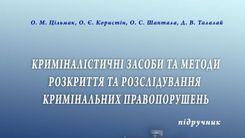
A NEW CRIMINAL SCIENCE TEXTBOOK HAS BEEN RELEASED
A new textbook has been published, prepared with the participation of the head of our Association - Doctor of Law, Professor Korystin O.E.
Forensic means and methods of revealing and investigating criminal offenses: textbook / O.E. Korystin, O.M. Tsilmak, O.S. Shaptala, D.V. Talalay. - Odesa: ODUVS, 2016. - 302 p.
The textbook is intended for cadets and students of higher legal educational institutions to master the material on the academic discipline "Forensic means and methods of revealing and investigating criminal offenses".
The textbook will be useful to students, cadets, listeners, scientific and pedagogical staff of universities and law enforcement officers.
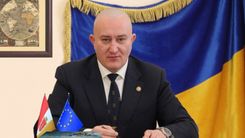
DEAR FRIENDS!
Spring is outside the windows! Ukrainian spring! Spring is always a renewal, it is always a holiday of the beginning of a new life, new hopes and dreams.
In these spring days, it is necessary to remember with great respect the heroes of Chernobyl, who with their lives and health protected the world from an invisible enemy.
In these days, we must honor those who brought liberation from the fascist plague to our homes in 1945, who won the Second World War.
In these days, along with the majestic holiday of Easter, the long-awaited hope and bright joy of the victory of good over evil come to all of us. This disturbing feeling acquires a special meaning in these stormy days for Ukraine. We all experience an extremely anxious feeling for the fate of our Fatherland, for the happy future of the entire Ukrainian people.
In these days, we must remember the immortal feat of the heroes who defend the independence of our state in the East. The best spiritual monument for them should be the strong and powerful, independent and united Ukrainian state revived by us.
At the same time, each of us is required now more than ever to have maximum endurance, unity and vigilance, organization and discipline in order to preserve our Motherland as the apple of our eye.
Easter is both a great national holiday and a deeply personal and family holiday, especially revered and glorified by our people. And not only because it comes with the awakening of nature, in the blooming and inspiring spring season. It is also a significant symbol for every person of the victory of life over death, good over evil, light over darkness, faith over hopelessness and despair.
On Easter, everyone should reflect on eternal spiritual values: goodness, mercy, patience, mutual assistance and nobility in their attitude towards each other. After all, any good deed done for the sake of another person will certainly be repaid to you a hundredfold. Let us remember this always and everywhere! Christ is risen - Ukraine will also rise!
I wish you that your souls are rich in goodness, clean and radiant, like an Easter towel, cheerful and inspired, like colorful Ukrainian pysankas.
May the crimson bells of Easter bring joy and harmony to your homes!
May the peaceful sky above your head and your native land under your feet!
Sincerely,
Deputy Chairman of the All-Ukrainian
Association of Scientists and Specialists
in the Field of Operational and Investigative Activities
Candidate of Law, Associate Professor S.V. Albul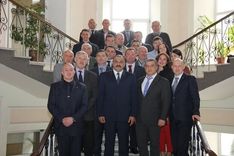
CRIMINAL INTELLIGENCE: THEORY AND PRACTICE
On April 29, 2016, the Odessa State University of Internal Affairs, at the initiative of the All-Ukrainian Association of Scientists and Specialists in the Field of Operational and Investigative Activities, hosted the International Scientific and Practical Conference “Criminal Intelligence: Methodology, Legislation, Foreign Experience” and a regular meeting of the Association’s Board.
At the beginning of the conference, the Chairman of the Association, Doctor of Law, Professor Oleksandr Korystin, noted that the criminogenic situation in modern Ukraine is characterized by an unusually large number of criminal manifestations, which are caused by permanent political instability, the destruction of established economic ties, the decline in the level of people’s well-being, and the necessity of conducting hostilities in the east of our country. In recent years, the number of criminal groups that are well-organized and use the latest methods of committing property and violent crimes, firearms, explosive devices, special technical and other means to counteract law enforcement agencies in their illegal activities has significantly increased.
Effective counteraction to crime, primarily in its most dangerous organized forms, is impossible without awareness of the processes taking place in the criminal environment, without the ability to influence them with a preventive purpose, without careful clandestine documentation of the facts of illegal activity. Law enforcement agencies of Ukraine must have up-to-date information about the conditions for the formation and functioning of organized criminal groups; the mechanisms by which they commit crimes; the role of each member of the criminal group in this; the movement of shadow and other financial flows that enable the existence of these groups or are the subject of their criminal interests; the infrastructure of organized crime, as well as other information necessary for organizing effective counteraction to crime in Ukraine.
Receiving, extracting, documenting, analytical processing, systematizing and storing information of a criminogenic nature, as well as forecasting the development of events and identifying existing risks, should be handled by specialized units of law enforcement agencies, taking into account the specific conditions of this work, associated with complete secrecy, increased danger to personnel, and the need for special professional training. Police practice in most developed countries and the positive experience of law enforcement agencies in Ukraine indicate that it is advisable to assign these functions to criminal intelligence units, whose activities should be secret.
The urgent need for effective counteraction to organized crime, while respecting the constitutional rights and freedoms of man and citizen, as well as the existing experience of the criminal intelligence units of the Ministry of Internal Affairs of Ukraine, including negative ones, should be used as the basis for a scientific discussion of the problems of regulatory, organizational, methodological, tactical, technical and information support for the work of criminal intelligence units in our country in the context of the development of the global market economy and modern migration processes.
The international scientific and practical conference was held with the assistance of the Prague Institute for Security Studies (Czech Republic) and the Center for European Reform Studies (Grand Duchy of Luxembourg).
The conference was attended by 116 participants from 9 regions of Ukraine: Vinnytsia, Dnipropetrovsk, Kyiv, Lviv, Luhansk, Mykolaiv, Odessa, Kharkiv, Kherson. Representatives of scientific institutions and educational institutions of the Duchy of Luxembourg, the Czech Republic, and the Republic of Moldova also took part in the conference.
During the conference, 98 reports were heard and discussed, covering a wide range of criminal intelligence issues.
According to the program and registration data, 116 participants took part in the conference, including: 18 doctors of sciences, 52 candidates of sciences, 21 employees of practical departments, 16 associate professors and postgraduate students, 13 cadets and students.
Sectional meetings were divided into research areas, in accordance with the issues of the conference:
— “Problematic issues of the formation of the categorical apparatus and methodology of criminal intelligence”;
— “The relationship between operational and investigative activities and criminal intelligence: theory and practice”;
— “Criminal intelligence in the field of protecting the economic security of the state”;
— “Prospects for the use of criminal intelligence in criminal proceedings”.
The scientific results of the conference were summarized at the final meeting with the participation of members of the Board of the Association.
CONFERENCE RECOMMENDATIONS
Given the urgent need of society for a comprehensive renewal of law enforcement activities and the formation of a proactive model of police activities based on the use of methods and means of criminal intelligence, the participants of the international scientific and practical conference consider it necessary:
1. In the field of scientific and research activities:
In order to conceptually rethink and scientifically study the theoretical and applied problems of implementing the intelligence function of operational and investigative activities, we consider it necessary to carry out the following set of scientific research aimed at:
1.1. Determining the genesis and historical patterns of the formation of the "theory of criminal intelligence" as a private theory of operational and investigative activities, with the definition of its system of object, subject, structure, functions and methodological basis: scientific tools, theoretical categories, language, system of principles.
1.2. Identification of problems and directions for defining and forming a paradigm-concept – strategy and tactics of criminal intelligence.
1.3. Substantiation of theoretical, legal, scientific, moral, ethical and psychological foundations of criminal intelligence.
1.4. Study of positive experience of intelligence activities of law enforcement agencies of developed countries of the world in order to introduce modern innovations to increase the efficiency of criminal intelligence, use of modern intelligence methods and means, observance of human and citizen rights and freedoms.
1.5. Development of organizational, tactical and methodological principles for criminal intelligence at the current stage of development of Ukrainian society.
2. Organizational measures:
2.1. To create a flexible system of coordination and interaction between the National Police, the Security Service of Ukraine, the State Security Service, the Directorate of the Ministry of Internal Affairs of Ukraine, financial investigation units of the State Fiscal Service, and other law enforcement agencies with the aim of exchanging intelligence information to solve criminal intelligence tasks, to substantiate and determine the possibility of introducing coordinating structures (officers, liaison groups) in law enforcement agencies in the areas of criminal intelligence.
2.2. In order to improve the information and analytical support of criminal intelligence of the National Police, to scientifically substantiate and develop, based on innovative approaches to the use of modern information and telecommunication technologies, methodological recommendations for the reorientation of information and reference work into intelligence and analytical work in order to predict trends in the criminalization of society, assess risks, the degree of danger and the scale at the regional, national and international levels, as well as reduce the level of latency of crimes.
2.3. To create new or improve existing electronic information and search systems and software for searching for intelligence information in the areas of criminal intelligence.
2.4. In order to train highly qualified specialists in the field of criminal intelligence, to develop and introduce into the educational process of universities with special training conditions of the Ministry of Internal Affairs of Ukraine the following academic disciplines: "Criminal Analysis (Criminal Intelligence)", "Fundamentals of Operational and Technical Documentation", "Fundamentals of Computer Intelligence", "Analytical Work in ORD".
2.5. To form a modern methodological base of criminal intelligence, create an interdepartmental creative team to prepare methodological recommendations and reference publications on the implementation of intelligence and search activities by units of the National Police, to form information bases with the possibility of their use for the preparation of analytical reviews and criminal intelligence materials during the formation of strategies for combating crime, as well as for solving the tasks of specific criminal proceedings.
2.6. Based on the study of the best experience of police intelligence activities of law enforcement and special agencies of foreign countries, recognize the need to develop indicators (indices) of the effectiveness of the activities of operational units in terms of the implementation of the intelligence function.
2.7. Recommend the reports of the participants of the International Scientific and Practical Conference "Criminal Intelligence: Methodology, Legislation, Foreign Experience" for publication in a separate collection of materials.
3. In the legislative sphere:
In order to bring the current legislation, departmental regulatory legal acts in the field of criminal intelligence into line with world standards for ensuring human rights and freedoms, scientists and specialists must:
3.1. Based on the rethinking and scientific study of the implementation of the intelligence function of the ORD, make proposals for amendments and additions to the Law of Ukraine “On Operational and Investigative Activities” and departmental regulatory legal acts regulating the activities of operational units.
Based on the materials of the international scientific and practical conference “Criminal Intelligence: Methodology, Legislation, Foreign Experience”, a collection of abstracts was published, which highlights the results of scientific research by the participants of this event. The participants of the conference received the corresponding certificates.
